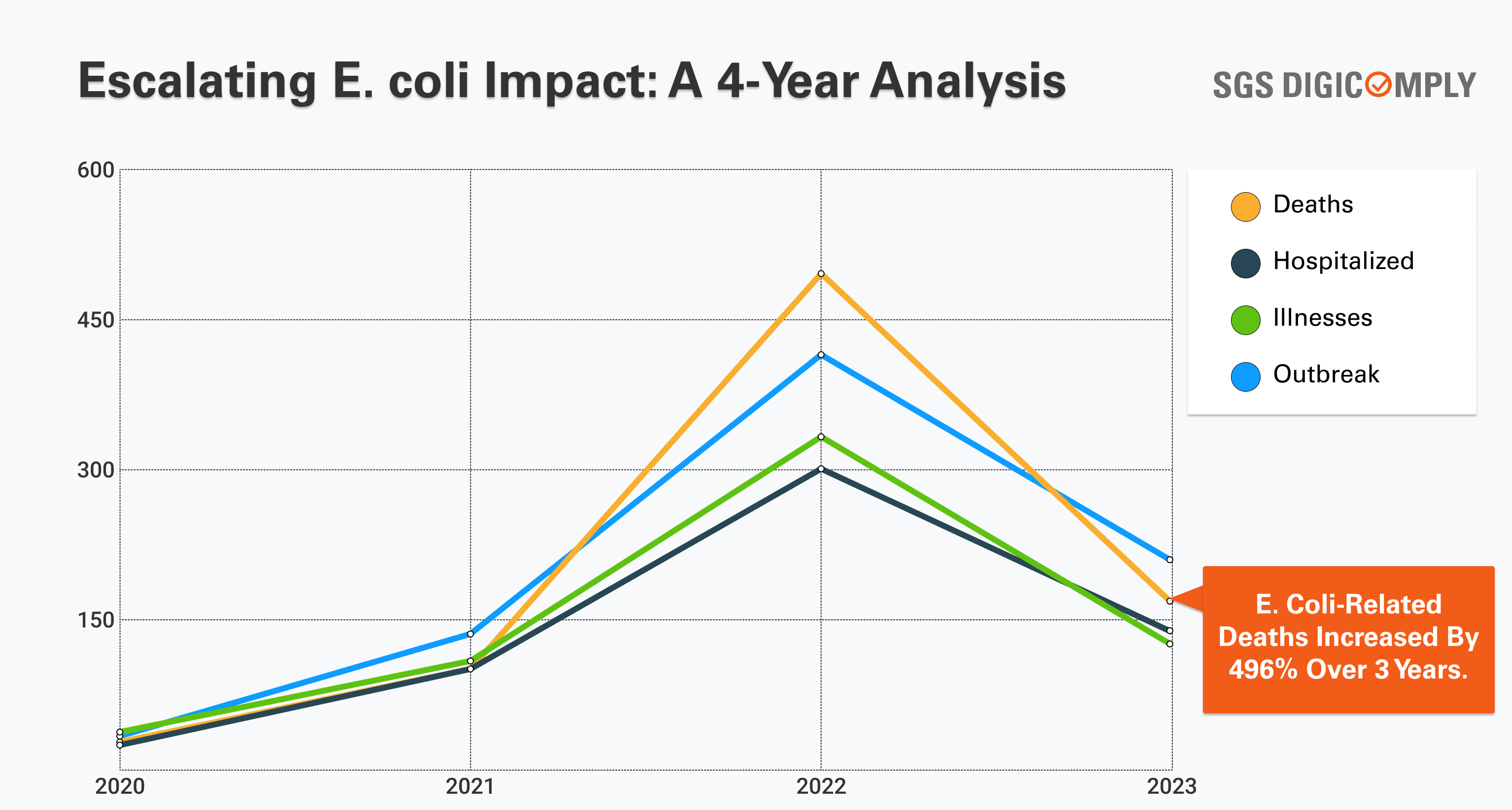Gone are the days when concerns about burger safety were limited to worries about whether the cook washed their hands. In the modern era, where burgers are a ubiquitous and beloved food choice, a more sinister threat lurks beneath the surface: Escherichia coli, commonly known as E. coli. This pathogenic bacterium, when present in undercooked burgers, has led to tragic cases of illness, permanent disabilities, and even death. This article explores the historical incidents, the prevalence of E. coli in burgers, and the importance of proper handling and cooking to ensure food safety.
Historical Incidents:
The devastating consequences of undercooked burgers were starkly illustrated in 1993 when four children lost their lives after consuming burgers from the fast-food chain Jack-in-the-Box in the United States. The culprit was the pathogenic bacterium Escherichia coli, specifically the O157:H7 strain, found in inadequately cooked burgers. This incident left 178 customers with permanent health issues. Subsequent cases in 2009 and 2011 further highlighted the dangers, including a 22-year-old teacher paralyzed by homemade burgers and a 10-year-old boy who tragically lost his life after consuming a burger purchased from a supermarket chain.
Prevalence of E. coli in Burgers:
Research has shown that E. coli, particularly the O157:H7 strain, is prevalent in raw burger samples obtained from fast food outlets and restaurants. A study published in PubMedCentral revealed that E. coli had the highest prevalence among common foodborne pathogens in both kebab (70%) and burger (48%) samples. The bacterium, originating from the intestines of cattle, can survive for months and poses a significant risk when transmitted to humans through undercooked meat.
Food Safety Concerns and Research Findings:
In response to growing concerns about undercooked burgers, the Food Safety Authority of Ireland (FSAI) issued a public reminder in 2018, urging caterers and restaurants to thoroughly cook mince burgers to eliminate harmful bacteria. Research conducted by the UK's Animal and Plant Health Organization in 2014 highlighted that undercooked burgers resulted in the highest number of human illnesses per 100,000 servings compared to medium and well-done burgers. The study emphasized a 41.25% and 137.5% increase in the mean probability of contamination for medium and rare burgers, respectively.
Safe Handling and Cooking Practices:
The alarming data underscores the need for special handling and cooking practices both at home and in food establishments. Consumers are advised to ensure that burgers are cooked to a minimum temperature of 75°C before serving. For those who prefer their burgers less done, longer cooking times are necessary, but the temperature should never drop below 60°C to eliminate potential pathogens. Whether cooking at home or dining out, it is crucial to communicate preferences for well-done burgers to prevent the risks associated with undercooked meat.
Packaged Ground Beef Considerations:
Even for those who opt for packaged ground beef, there are hidden risks. The New York Times reported that packaged ground beef often consists of a mix of different meat grades from various parts of cows and slaughterhouses. This variability increases the vulnerability to E. coli contamination, yet there is no legal requirement to test mincers for the pathogen. Consumers should be aware of these nuances and take additional precautions when handling packaged ground beef.
SGS Digicomply Insights: Escalating Trends of E. coli Incidents Demand Vigilance
The data analysis spanning four years (2020-2023) reveals a concerning escalation in E. coli-related incidents, underscoring the imperative for heightened food safety measures. The recorded figures illustrate a substantial rise in outbreaks, illnesses, deaths, and hospitalizations attributed to E. coli contamination.
From 2020 to 2023, there was a staggering surge across all parameters. The number of outbreaks increased by 450%, illnesses by 229%, deaths by 496%, and hospitalizations by 452%. These percentages reflect a significant upward trend in E. coli-related cases over this four-year period.

These escalating figures emphasize the criticality of robust measures to prevent E. coli contamination in food products like burgers. It is imperative to reinforce stringent food safety protocols, particularly in the preparation and handling of food items susceptible to E. coli contamination.
For further comprehensive monitoring and risk assessment concerning E. coli, leveraging SGS Digicomply is strongly recommended. This platform offers precise data analysis and ongoing insights, essential for enhancing food safety strategies and mitigating the health risks associated with E. coli contamination. Utilizing SGS Digicomply will be pivotal in averting the continued spread of this dangerous bacterium and bolstering food safety standards for the protection of public health. Explore SGS Digicomply platform now.
Conclusion:
The enjoyment of burgers comes with a responsibility to prioritize food safety. The tragic cases of E. coli-related illnesses and deaths serve as a stark reminder that undercooked burgers can have severe consequences. By understanding the prevalence of E. coli, adhering to proper handling and cooking practices, and staying informed about the risks associated with packaged ground beef, consumers can take proactive steps to safeguard their health and the well-being of those they serve burgers to.
Want to Learn More About How AI Transforms Food Safety?
Furthermore, to gain a deeper understanding of how AI is transforming Food Safety, we invite you to join our free webinar on December 14th, titled "From Data to Decision: How AI Transforms Food Safety".
In this webinar we will delve into the many facets of this topic with a particular focus on how the vast troves of data created in our industry can improve decision making and elevate the insights we all bring. We are approaching an era when technology doesn’t just support our efforts; it transforms them Secure your spot now!.





.webp?width=1644&height=1254&name=Food%20Safety%20Dashboard%201%20(1).webp)
